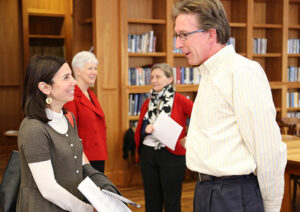Submit your 2026-27 FLC Proposal by March 27!

The Center for Teaching and Learning offers UGA faculty and post-doctoral scholars the opportunity for cohort-based instructional development through its Faculty Learning Communities (FLCs) program.
A Faculty Learning Community is a specifically structured community of practice that includes the key goals of building community, engaging in scholarly (evidence-based) teaching, and the development of the Scholarship of Teaching and Learning (Cox & Richlin, 2004). The CTL provides funds for each FLC to support community activities. FLCs may have as few as six or as many as sixteen participants. Participants meet approximately once every three weeks during the academic year.
CTL FLCs have the additional goal of sharing the outcomes of their discussions with the larger teaching and learning community (either at UGA or beyond). This FLC Engagement Project (the FLC EP) might take many forms, such as a CTL workshop, resources for instructors at UGA, the development of curriculum to be implemented in academic courses at UGA, the submission of a journal article, a conference presentation, etc.
